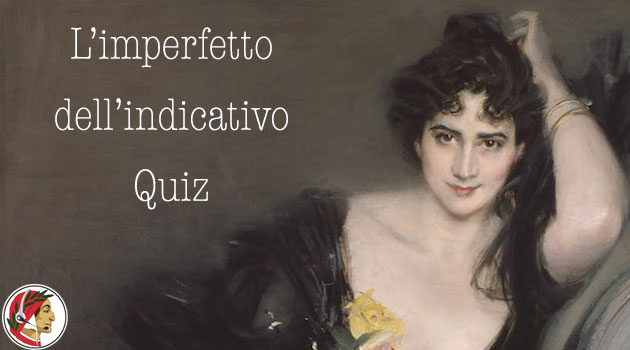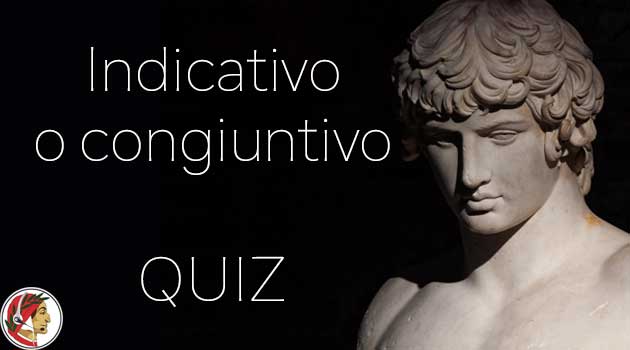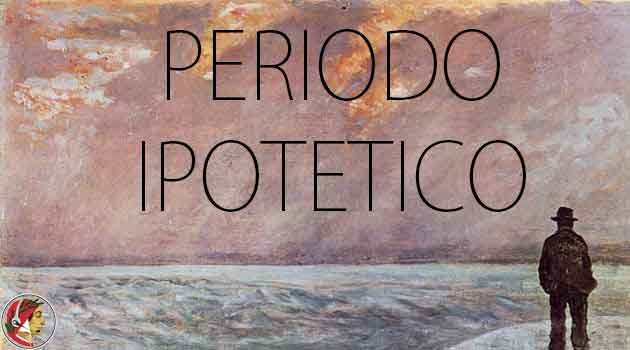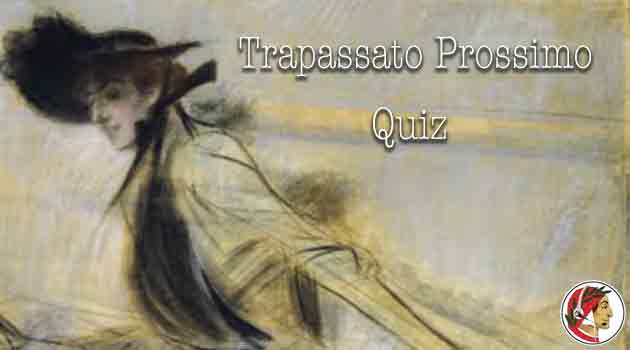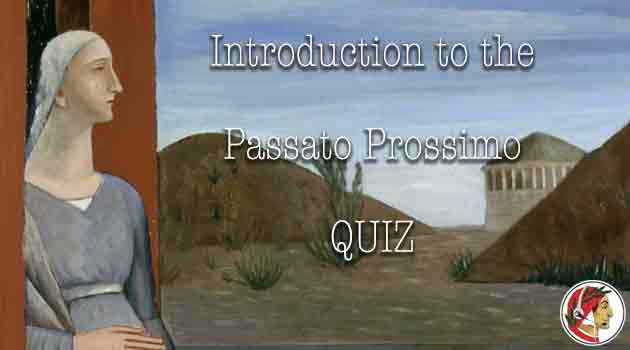Mi sono accorto di non avere mai scritto un articolo in italiano sull’imperfetto dell’indicativo. Eccolo, con un quiz di livello avanzato
Spulciando tra i vecchi articoli del blog mi sono accorto di una grave mancanza, piuttosto inspiegabile. Un po’ per pigrizia, un po’ perché spesso l’imperfetto viene considerato un argomento per principianti, non ho mai scritto due righe in italiano sul suo uso colloquiale. Provvedo subito a colmare la lacuna.
Siccome state leggendo questa pagina senza problemi, do per scontato che conosciate gli usi principali dell’indicativo imperfetto. Non mi soffermerò a lungo sulle basi. Vedremo insieme gli usi più discorsivi e quotidiani.
Cominciamo con la definizione.
Vi siete mai chiesti perché l’imperfetto si chiami così? Se la risposta è no, chiariamo subito il dilemma. Ovviamente perché non è “perfetto”, non è completo, non ha un inizio o una fine precisi. Infatti, l’imperfetto ci serve per descrivere:
- un’azione già iniziata – Mentre guardavo la partita, sono arrivati i miei amici.
- un’azione ripetuta nel passato – Si alzava spesso alle cinque del mattino.
- una descrizione – Il sole splendeva e tutti chiacchieravano allegramente.
- una situazione interrotta – Non vedevo Milano da un bel pezzo.
- un’evento che non si è realizzato – Per poco non cadevo.
- l’imperfetto “di modestia” – Volevo ordinare qualcosa da mangiare.
- un passato irreale – Se venivi alla festa, ti divertivi. (colloquiale)
- discorso indiretto/futuro nel passato – Ha detto che arrivava alle cinque. (coll.)
- un futuro discusso nel passato – A che ora volevi partire domani? (coll.)
Tutti questi esempi sono usati nell’italiano quotidiano. Alcuni descrivono uno scenario reale, tipico dell’indicativo, sempre nell’ambito di una realtà incompleta, dalle coordinate incerte. Questa “incertezza” dell’imperfetto ci aiuta anche a rappresentare un mondo ipotetico, un fatto che non si è verificato, un futuro ancorato al passato.
Spesso siamo al limite della grammatica corretta ma, siccome l’uso comune della lingua modifica la grammatica, le frasi che ho indicato come colloquiali sono perfettamente valide nella lingua di tutti i giorni.
La semplificazione di alcuni tempi complessi a favore dell’imperfetto è ormai consolidata. Per esempio, la frase corretta nell’esempio del “passato irreale” dovrebbe essere:
- Se fossi venuta alla festa ti saresti divertita.
Si vede molto bene come l’imperfetto, più semplice e diretto, possa sostituire senza particolari problemi il congiuntivo trapassato e il condizionale composto nel periodo ipotetico dell’irrealtà. Ho volutamente usato il femminile nella frase per mostrare come alcuni dettagli vengano a mancare con l’imperfetto, privo di genere.
Chi legge romanzi italiani contemporanei si sarà certamente accorto della semplificazione del periodo ipotetico, anche nella lingua scritta.
Stesso discorso vale per il “futuro nel passato” che, come sappiamo, dovrebbe essere espresso con il condizionale composto:
- Ha detto che sarebbe venuta alle cinque.
La frase “Ha detto che veniva…” è corretta? Diciamo che è accettabile e accettata. Sicuramente è molto comune. Anche qui sparisce il femminile, ma poco importa se sappiamo già di chi stiamo parlando.
Un’ultima considerazione. Molti studenti alle prime armi usano solo l’imperfetto nelle descrizioni ambientate nel passato, sbagliando, perché gli è stato spiegato che questa è la funzione dell’imperfetto. Dipende dalla situazione. Ricordate che se la descrizione riguarda eventi completi, “perfetti”, dobbiamo usare il passato prossimo, il trapassato o il passato remoto.
- I cuochi avevano preparato un bellissimo buffet e tutti hanno mangiato con piacere.
Questo non è un elenco completo delle possibilità dell’imperfetto.
Possiamo discuterne a lezione. Il quiz contiene frasi “sgrammaticate” che si usano nell’italiano parlato. Dovete segnarle come corrette. Se usate un cellulare, mettetelo in orizzontale per leggere meglio le domande.
Alla prossima!
LOADING QUIZ...
Giovanni Boldini – Ritratto di Lady Colin Campbell – 1894

